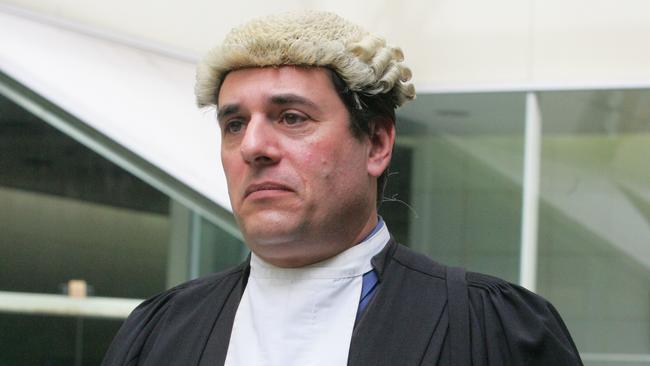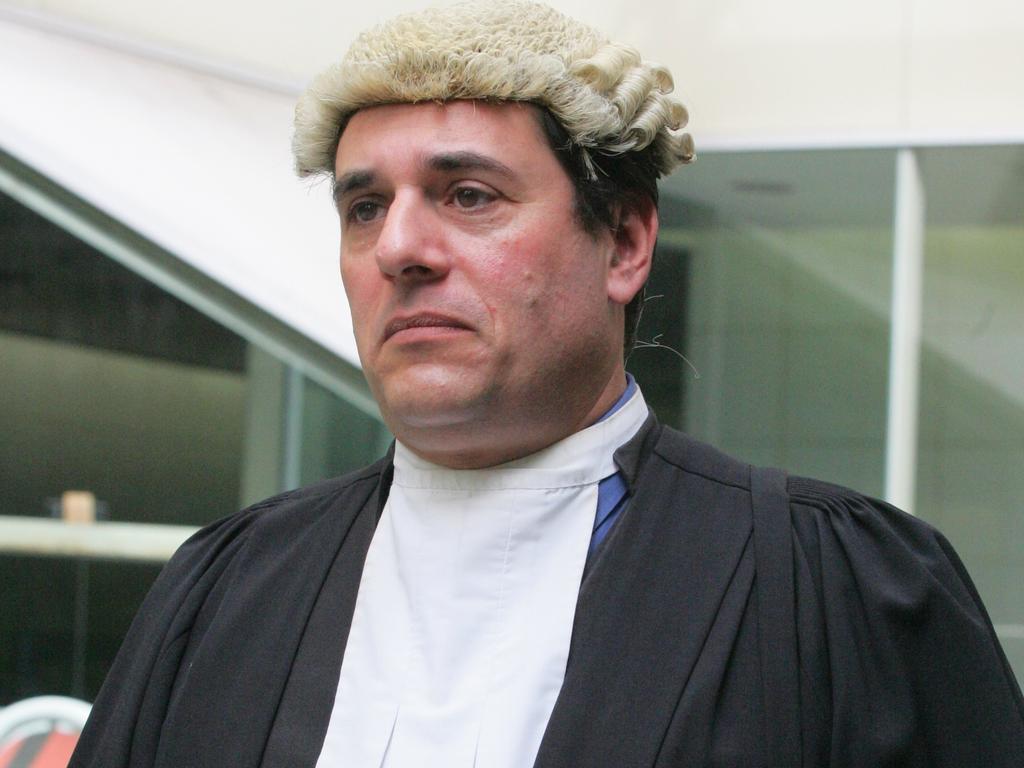Judges can’t be sued for mistakes, says High Court in landmark ruling
The High Court has overturned a landmark case that had allowed a judge to be personally sued.

The High Court has overturned a landmark case that had allowed a judge to be sued for the first time in Australia, depriving the Queensland father who had been wrongly jailed for contempt by Federal Circuit Court judge Salvatore Vasta of more than $300,000 in damages.
In a 2023 case that sent shockwaves through the legal system, judge Michael Wigney in the Federal Court found Justice Vasta was personally liable for the false imprisonment of “Mr Stradford” (a pseudonym) as he had “acted without, or in excess of, his jurisdiction”.
Justice Vasta had presided over the “grossest parody of a court hearing”, lawyers for Mr Stradford had argued, behaving like the foul-tempered Queen of Hearts in Alice in Wonderland – delivering “sentence first, verdict afterwards”.
But on Wednesday the High Court unanimously allowed an appeal by Justice Vasta, finding that “despite the many and egregious errors” in his treatment of Mr Stradford”, all judges of courts referred to in section 71 of the Constitution were immune to a civil suit arising out of acts done in the exercise of their judicial function or capacity.
“As Judge Vasta purported to perform such a function in convicting and sentencing Mr Stradford, he was not liable to Mr Stradford for false imprisonment,” the court found.
Mr Stradford had also sued the commonwealth and the state of Queensland, but the High Court found that as each of the Queensland police officers and correctional officers who took the father of two into custody had a legal duty to execute orders or warrants made or issued by the Federal Circuit Court, they were not “beyond power” so the commonwealth and Queensland were also not liable.
The judgment leaves Mr Stradford without redress against the judge’s undisputed wrong conduct and is likely to revive calls for a federal judicial commission to investigate complaints against judges, promised by the Albanese government but not delivered.
Justice Vasta had ordered Mr Stradford to hand over gambling account statements in a property dispute with his ex-wife in 2018.
Mr Stradford said he had tried to produce them but Justice Vasta did not believe him, telling him: “I hope you brought your toothbrush.” The father of two, who was not represented by a lawyer, was found in contempt and sentenced to 12 months in jail.
He spent six days in jail before he was released.
The orders were overturned by the full bench of the Family Court, which described the case as a “gross miscarriage of justice”.
In his statement of claim, Mr Stratford described being attacked multiple times in the Brisbane watch-house, including being punched in the head and waking to find his cellmate trying to strangle him. He had become suicidal and was transferred to the maximum-security Brisbane Correctional Centre because he was “at risk of self-harm”, but was threatened with rape there.
A psychiatrist described him as “a broken man” who suffered post-traumatic stress disorder and depression.
Judges usually have immunity for their decisions but in August 2023, Justice Wigney found Justice Vasta personally liable for Mr Stradford’s false imprisonment.
Of the $309,500 awarded, $50,000 was ordered to be paid as exemplary damages “to express the court’s disapproval of the highhanded conduct of the judge and His Honour’s reckless disregard of due process and the rights of Mr Stradford”.
The commonwealth and the state of Queensland were also found liable by Justice Wigney, who rejected their argument that they were acting on a judicial order “which appeared valid on its face”.
Australian courts have traditionally recognised a distinction between “superior” courts (such as the Federal Court and state Supreme Courts) and “inferior courts” (such as the Federal Circuit Court) when it comes to judicial orders affected by jurisdictional error. Orders made in error by a Superior Court have legal force until set aside but those made by an inferior court are said to lack legal force from the outset.
Mr Stradford’s lawyers argued that the Federal Circuit Court was an inferior court, and Justice Vasta exceeded his jurisdiction by making orders he had no power to make, thereby losing any benefit from the doctrine of judicial immunity.
But in a joint judgment, Chief Justice Stephen Gageler and judges Jacqueline Gleeson, Jayne Jagot and Robert Beech-Jones ruled there was no justification for differentiating between the scope of the immunity from civil suit afforded to judges of all courts. The purpose of immunity was “to facilitate the independent performance of the judicial function free from the spectre of litigation, as well as to enhance the finality of judgments quelling legal controversies”, they said.
“The effect of this absolute immunity may be such that a victim of unjust treatment by a judicial officer will be left with no means of obtaining monetary compensation through the courts.”
An ex gratia or “act of grace” payment by the government might be the only recourse, they observed, without recommending it be done in this case.
Judge Vasta has come under fire in other cases over his courtroom demeanour, found by an appeal court in one case to have been “frequently aggressive, rude and overbearing”, and in another of being “sarcastic, disparaging and dismissive”, and interrupting a business operator’s case in such an “egregious” way that he denied the man a fair trial when he jailed him for 12 months for contempt of court.





